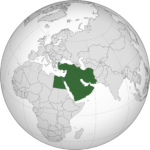World Press Freedom Day is falls on May 3rd amid crucial challenges and structural changes across the world, where media plays the role of observing, witnessing and reporting major events.
There is a controversy on media objectivity and the extent or lack in the influence of political, economic, social and cultural agendas. Such agendas could put pressure on media forcing it to change beliefs and violate the simplest of the rules of professional conduct that are necessary to ensure objective and professional reporting of the truth and preservation of freedom.
Journalists and media-person are supposed to portray issues and events in a neutral and unbiased manner, regardless of their opinion or personal beliefs
in a press release, MEMPSI recognized the key role that a free press plays in democracy and freedom of speech and its contribution to covering the major transformation of civilization.
The institue also emphasized the importance of supporting efforts of enacting legislations that protect the rights of press, journalists and society. The institute said it believes in the progression of media to match the digital and technological developments in the world.
MEMPSI underlined that the World Press Freedom Day further serves as an opportunity to celebrate the fundamental principles of press freedom and pay tribute to journalists who have lost their lives in the line of duty.
The institute emphasizes that free societies with pluralistic and independent press are considered those capable of facing development challenges, saying a free press is related to better economic growth.
It stated that journalists play a key role in providing news as they bring, investigate and release facts, urging to support and defend media.
MEMPSI said digital technology continues to make drastic changes in media around the world. Digital technology has enabled the exchange of information in unprecedented ways, facilitating the release of press information across borders.
The institute emphasized the importance of excepting more efforts to deal with the risks of the digital era and seize the opportunities it offers.
It called on technology companies, media outlets and civil society to stand together in order to outline new features of the digital world that would protect the press and journalists.
MEMPSI urged decision makers to take responsibility and provide all information about their institutions to the press to prevent any fabrication or speculation that go against the foundation of journalism.
The institute demanded reporters and workers in press institutions to keep in mind that the press is a message that aims at developing society.
It mentioned the importance of remaining partial and refraining from attacks on human dignity to prevent the press from getting into turmoil.
MEMPSI explained that there is a huge contrast in journalism across Arab countries as some have gone through changes, revolutions and uprisings. Some countries have press and media freedoms that indicate a transitional phase.
The institute mentioned that there are some press exaggerations and settling of scores among Arab media outlets, as well as positive and negative investment in new climates.
World Press Freedom Day is commemorated every year in May 3rd as a reminder for governments to remain committed to press freedom. It is a day for media-persons to contemplate on press freedom and ethics issues. World Press Freedom Day is also to support media that are against restricting or eliminating press freedom. It is a day to remember journalists who lost their lives in pursuit of the truth.
The United Nations General Assembly declared World Press Freedom Day in 1993 after recommendation was made in 1991 at the 26th General Conference session of UNESCO. It was also in response to the requests of African journalists who released the Winhoek Declaration in 1991 for independent and pluralistic press.

